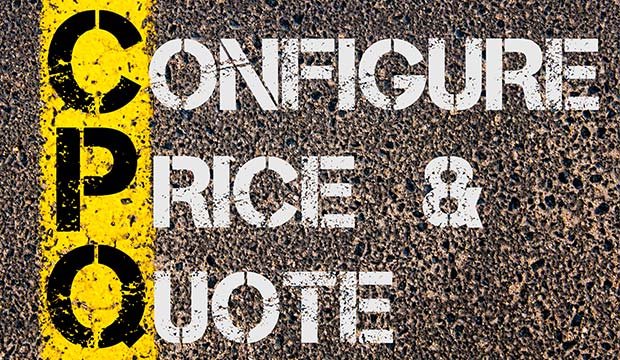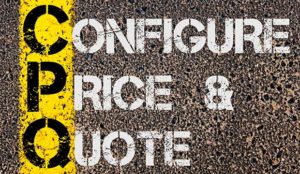Configure, Price, Quote systems have a name problem. When they debuted, their basic functions gave a name to the category that was self-explanatory, and it fit well. As with any good idea in technology, however, frequent use brought with it demand for more functionality that quickly outstripped the technology’s charter — a happy problem.
Today’s CPQ does all that its title initials claim as table stakes, and its new value is in making better use of time for sales reps and literally the whole organization.
The change that’s been happening, thanks to CPQ, is the same one that swept through most other parts of the front office in recent years. It has accelerated once slow processes and driven revenue generation.
With CPQ — as with the rest of the front office — we went from trying to automate individual activities to automating activities linked together to form whole business processes, thus accelerating them.
In CPQ’s case, this has meant constructing a proposal and contract from the basics of a quote, getting the order or renewal, and billing and collecting without the need to pause between steps and without long handoffs between different departments.
The CPQ process also captures more data, providing raw material for analysis and improvement. It’s now called the “quote to cash lifecycle,” and though it might look like regular selling, it takes away a lot of randomness in every step.
Propose and Contract
Almost as soon as we were able to generate them, we discovered that the purpose of accurate quotes was not to make nice proposals but to speed up a business process by capturing key information from a single reliable source.
Many elements of a proposal, such as the bill of goods, terms and conditions, also are fundamentally important to generating an accurate contract.
Ensuring that a CPQ system isn’t an island of information, but a constituent of the process, became essential.
Order and Renew
Savvy sales organizations also use proposals to help customers generate the actual order to ensure correct delivery of all components and a smooth customer experience through adoption.
With renewals or follow-on orders, the initial proposal and contract may have language about things like maximum pricing increases over the life of an agreement, or the next round of items to purchase.
You can have all of this information online or you can store it in a paper file, but too often getting at the paper can cause confusion and missed opportunities, as well as delay, so the CPQ system also functions as institutional memory.
Bill and Collect
You see this clearly when you understand that the accepted proposal also forms the core of the invoice or multiple invoices first stipulated by the proposal.
This is very important when you consider that at this point in the process, the original sales rep may be out of the picture, off trying to sell another deal. To prevent delay, it’s critical that the important understandings of any agreement be spelled out and secured in the CPQ system.
Data Analysis
Lastly, there’s analysis. Quotes and contracts represent a previously unexplored pile of big data. Imagine what you could discover if all that data were machine readable for analytic engines. There’s no telling what you might find out.
For instance, there’s often a world of information that gives insight into how and when customers purchase and how reps sell. There’s also a natural sales funnel if your agreements often extend to more than a single purchase.
Phased approaches to product adoption have to be managed, and too often the people who do the original selling are not the ones who deliver the follow-up. A good CPQ system will give all employees access to the information they need to ensure all aspects of a deal are fulfilled in a timely fashion.
Closing Thought
It’s said that selling is a numbers game. The more people a rep interacts with, the more successful the rep — and that requires efficiency. But don’t think this ends with a closed deal.
Many businesses today have huge customer bases with all kinds of terms and conditions or special instructions in their deals — that’s a big data pile too. For a long time, those extras were hidden in paper files and hopefully in some employee’s brain.
A good CPQ system can serve as an aid to institutional memory that is both accurate and fast. It can save money by ensuring quotes are correct and professional. Modern CPQ can help a business to make money by getting and keeping the details right in a fast-paced world, even on a handheld device.

























































